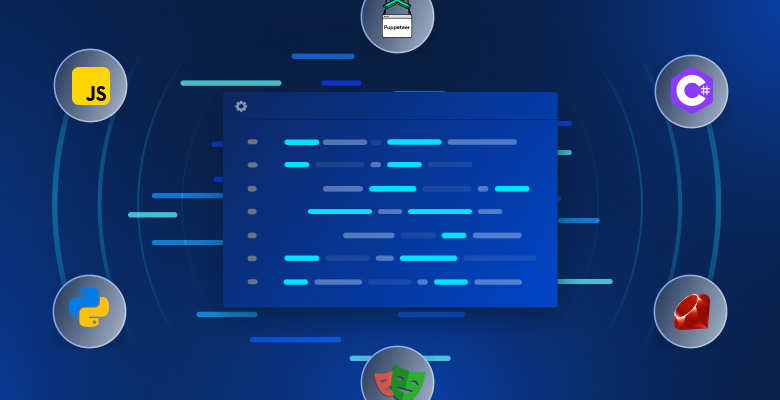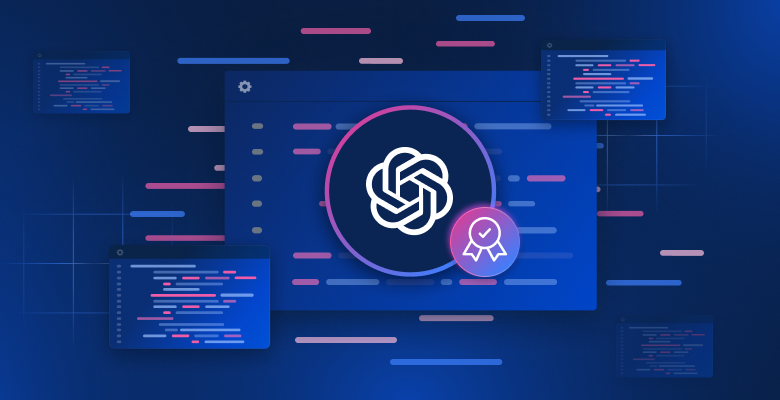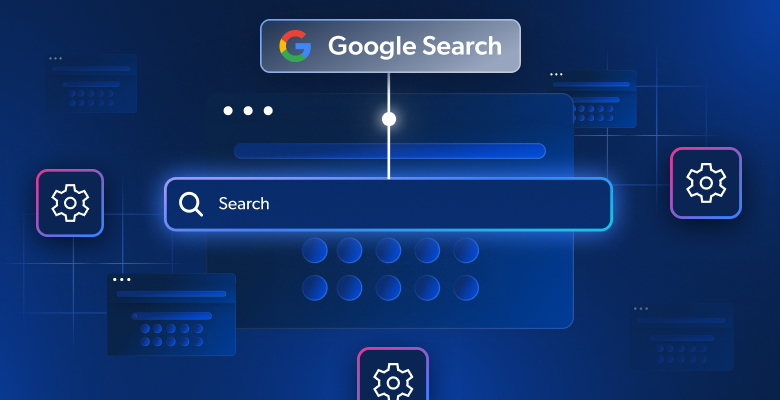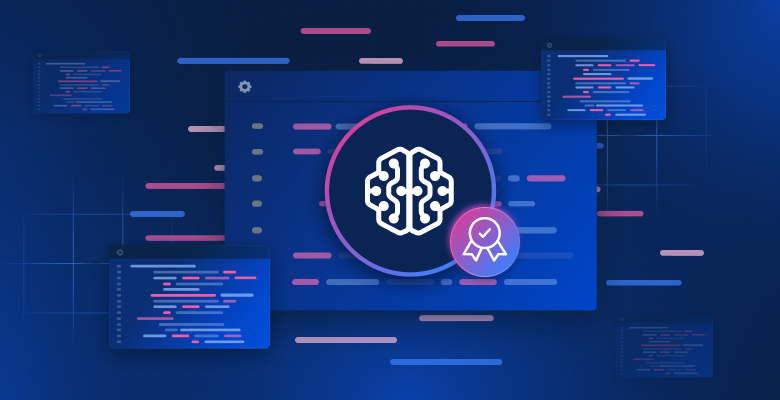TL;DR:
- Python leads with simplicity, extensive libraries, and strong AI/ML integration capabilities.
- JavaScript excels at handling dynamic content through browser automation and async operations.
- Ruby offers clean syntax and rapid prototyping for maintenance-friendly scraping projects.
- PHP integrates seamlessly with databases for web-native scraping workflows.
- C++ delivers unmatched performance for high-volume, resource-intensive scraping operations.
Web scraping has become essential for businesses leveraging AI, machine learning, and data analytics. The right programming language can mean the difference between a smooth data collection pipeline and a maintenance nightmare.
This guide compares the five most effective languages for web scraping based on performance, ease of use, community support, and library ecosystems.
1. Python
Python dominates the web scraping landscape for good reason. Its combination of simplicity and power makes it the default choice for both beginners and enterprises.
Why Python Works for Web Scraping
Extensive Library Ecosystem
Python offers the most comprehensive collection of scraping tools:
- Beautiful Soup for HTML parsing
- Scrapy for large-scale crawling (learn more)
- Selenium for browser automation (guide here)
- Requests for HTTP operations (detailed tutorial)
- Playwright for modern web apps (comparison with Selenium)
Built for Data Processing
Python’s native data structures and libraries like Pandas make it ideal for cleaning, transforming, and analyzing scraped data. The language integrates seamlessly with AI/ML frameworks, making it perfect for projects that feed training data to machine learning models.
Performance Considerations
While Python isn’t the fastest language, its multiprocessing and async capabilities (via asyncio and aiohttp) handle large-scale scraping efficiently. For scenarios requiring maximum speed, Python can interface with C extensions.
import requests
from bs4 import BeautifulSoup
url = "https://example.com"
response = requests.get(url, timeout=10)
soup = BeautifulSoup(response.content, "html.parser")
title = soup.title.string if soup.title else "No title found"
print(f"Page title: {title}")When to Use Python
- AI/ML data collection projects
- Projects requiring extensive data transformation
- Teams with data scientists or analysts
- Building custom datasets
Complete Python web scraping guide →
2. JavaScript
JavaScript’s native understanding of web technologies makes it a natural fit for scraping modern websites.
JavaScript’s Scraping Advantages
Native Web Integration
As the language that powers the web, JavaScript handles dynamic content, AJAX requests, and single-page applications without friction. Tools like Puppeteer and Playwright provide full browser control.
Asynchronous by Design
JavaScript’s event-driven architecture excels at parallel requests. Node.js enables server-side scraping with the same async patterns developers use for frontend work.
Modern Tooling
Key JavaScript scraping libraries:
- Puppeteer for Chrome automation (tutorial)
- Playwright for cross-browser testing (vs Puppeteer comparison)
- Cheerio for jQuery-like HTML parsing (guide)
- Axios for HTTP requests with proxy support
- Crawlee for production-grade crawling (documentation)
const puppeteer = require('puppeteer');
(async () => {
const browser = await puppeteer.launch({ headless: 'new' });
const page = await browser.newPage();
await page.goto('https://example.com', { waitUntil: 'networkidle2' });
const title = await page.evaluate(() => document.title);
console.log(`Page title: ${title}`);
await browser.close();
})();When to Use JavaScript
- Scraping JavaScript-heavy sites
- Teams with frontend developers
- Projects requiring browser automation
- Real-time data extraction
JavaScript web scraping libraries guide →
3. Ruby
Ruby prioritizes developer happiness with elegant syntax and convention over configuration.
Ruby’s Scraping Strengths
Developer-Friendly Syntax
Ruby’s readable code makes scrapers easy to maintain and modify. The language’s flexibility allows rapid prototyping without sacrificing code quality.
Solid Library Support
Essential Ruby scraping tools:
- Nokogiri for HTML/XML parsing
- Mechanize for automated browsing
- HTTParty for simplified HTTP requests
- Selenium-WebDriver for browser control
- Watir for web application testing
Memory Management
Ruby’s garbage collection and memory management provide stable performance for medium-scale scraping projects.
require 'nokogiri'
require 'net/http'
require 'uri'
url = 'https://example.com'
uri = URI.parse(url)
response = Net::HTTP.get_response(uri)
if response.is_a?(Net::HTTPSuccess)
doc = Nokogiri::HTML(response.body)
title = doc.css('title').text.strip
puts "Page title: #{title}"
endWhen to Use Ruby
- Rapid prototyping requirements
- Teams with Rails developers
- Projects prioritizing code maintainability
- Moderate-scale scraping operations
4. PHP
PHP’s web-native design and database integration make it ideal for certain scraping workflows.
PHP for Web Scraping
Web-Native Architecture
PHP was built for the web. It integrates effortlessly with MySQL, PostgreSQL, and Apache/Nginx, making it perfect for scrapers that store data directly in databases.
Battle-Tested Performance
PHP 8+ brings significant performance improvements, including JIT compilation. While not the fastest option, it handles most scraping workloads efficiently.
Scraping Libraries
- Symfony Panther for browser automation
- Guzzle for HTTP requests (proxy guide)
- PHP Simple HTML DOM Parser for parsing
- Goutte for web scraping (tutorial)
<?php
require 'vendor/autoload.php';
use Symfony\Component\Panther\Client;
$client = Client::createChromeClient();
try {
$crawler = $client->request('GET', 'https://example.com');
$title = $crawler->filter('title')->text();
echo "Page title: " . $title . "\n";
} finally {
$client->quit();
}When to Use PHP
- Projects with existing PHP infrastructure
- Direct database integration needs
- Web-based scraping dashboards
- Teams with PHP expertise
5. C++
C++ offers maximum performance for specialized, high-volume scraping operations.
C++ Performance Benefits
Unmatched Speed
As a compiled language with direct hardware access, C++ can be 10x faster than interpreted languages for CPU-intensive tasks.
Resource Control
Fine-grained memory management and multithreading capabilities enable efficient handling of thousands of concurrent connections.
Scraping Libraries
- libcurl for HTTP requests (with proxies)
- htmlcxx for HTML parsing
- Boost.Asio for async networking
- libtidy for HTML cleaning
#include <iostream>
#include <curl/curl.h>
#include <htmlcxx/html/ParserDom.h>
using namespace std;
using namespace htmlcxx;
size_t writeCallback(void* contents, size_t size, size_t nmemb, void* userp) {
((string*)userp)->append((char*)contents, size * nmemb);
return size * nmemb;
}
string fetchContent(const string& url) {
CURL* curl = curl_easy_init();
string buffer;
if (curl) {
curl_easy_setopt(curl, CURLOPT_URL, url.c_str());
curl_easy_setopt(curl, CURLOPT_WRITEFUNCTION, writeCallback);
curl_easy_setopt(curl, CURLOPT_WRITEDATA, &buffer);
curl_easy_perform(curl);
curl_easy_cleanup(curl);
}
return buffer;
}
int main() {
string html = fetchContent("https://example.com");
HTML::ParserDom parser;
tree<HTML::Node> dom = parser.parseTree(html);
for (auto it = dom.begin(); it != dom.end(); ++it) {
if (it->tagName() == "title") {
cout << "Title: " << it->innerText() << endl;
break;
}
}
return 0;
}When to Use C++
- High-frequency data collection
- Resource-constrained environments
- Real-time processing requirements
- Performance-critical applications
Language Comparison Matrix
| Feature | Python | JavaScript | Ruby | PHP | C++ |
|---|---|---|---|---|---|
| Learning Curve | Easy | Easy | Easy | Easy | Difficult |
| Performance | Good | Good | Good | Fair | Excellent |
| Dynamic Content | Excellent | Excellent | Good | Good | Fair |
| Library Ecosystem | Excellent | Excellent | Good | Good | Fair |
| AI/ML Integration | Excellent | Good | Fair | Fair | Good |
| Maintenance | Excellent | Excellent | Excellent | Good | Fair |
Overcoming Scraping Challenges
Regardless of language choice, production scraping faces common obstacles:
Anti-Bot Protection
Modern websites deploy sophisticated detection systems. Solutions include:
- Rotating proxies to avoid IP bans
- Residential proxies for authentic traffic
- CAPTCHA solving services
- Browser fingerprint management
Scale and Performance
Large-scale scraping requires:
- Distributed architecture (learn about distributed crawling)
- Efficient proxy rotation strategies
- Rate limiting and politeness policies
Data Quality
Ensuring reliable results involves:
Production-Ready Web Scraping with Bright Data
Building and maintaining scraping infrastructure requires significant resources. Bright Data provides enterprise-grade solutions:
- Web Scraper API: Ready-made scrapers for major platforms
- Scraping Browser: Playwright/Puppeteer-compatible browser with built-in unblocking
- Web Unlocker: Automatic CAPTCHA and anti-bot bypass (see it in action)
- Proxy Networks: 150M+ residential IPs across all locations
- Dataset Marketplace: Pre-collected data for immediate use
Whether you choose Python for its versatility, JavaScript for dynamic content, or C++ for raw performance, Bright Data’s infrastructure handles the complex challenges of production web scraping.







